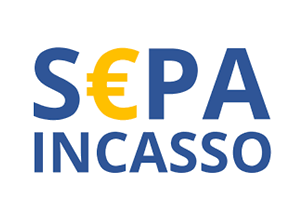Communities hold a immense potential for change, however fair coordination beyond centralized entities has always been a challenge. One of the main benefits from the Web3 revolution that we are experiencing today is to enable coordination in a decentralized manner, blockchain being a keystone technology for this feat.
We have seen the rise of decentralized communities that are able to come together and create change in a way that was not possible before. In this context, a new form of collaboration between community members aimed to tackle complex problems in a structured way has emerged. Decentralized Autonomous Organizations (Learn more about DAOs), the equivalent to an online-first company with strong democratic processes generally lead by consent rather than consensus.
DAOs are one of the tools that can be used for an innovative form of conservation: Decentralized Conservation (DeCon).
DeCon is the digital evolution of conservation. It is built on the premise of the Web3 community: a group of people who trust each other + their decentralized system and work together to create a better world. These communities are based on transparency, trust, and mutual respect and share a common vision.
DeCon has the potential to democratize funding, connect funders directly with stakeholders of all sizes, and verify impact in conservation.
There's no doubt that DeCon has the potential to generate more growth, diversification, communication lines, local control, and community empowerment for the conservation world. (Groak & Pendleton, 2018)
But how can we make sure that DeCon actually empowers communities?
Linking community empowerment, decentralized control of natural resources, and local development can help support the success of decentralization efforts. When communities are empowered, they are better able to advocate for their own interests and protect their natural resources. In addition, local development can provide much-needed resources and support to community conservation initiatives.
There are a few key ways that we can help to ensure that DeCon empowers communities:
The success of decentralization efforts will ultimately depend on the ability of different stakeholders to work together to promote communication, collaboration, and community empowerment.
Decentralization of conservation is still in its early stages, but there are already some successful cases that demonstrate the power of DeCon when civil society is involved. One example is the work of the Zoological Society of London (ZSL) and their partnership with the blockchain company BitPesa (Rebranded as AZA Finance)
Together, they have created a blockchain-based payment system that allows rangers in the field to easily and quickly transfer money to and from local communities. This has helped to reduce poaching and increase transparency and communication between locals and rangers. In addition, it has empowered local communities to take a more active role in conservation.
We also have the great efforts of Toucan Protocol which is a decentralized ecosystem of carbon offsetting projects. They are also using the Ethereum blockchain to fund their projects with the goal of becoming the world's first completely decentralized carbon offset marketplace.
Lastly, we also have Regen Network which is a platform that helps connecting ecological data with actions in the physical world. They use regenerative protocols to turns this data into actionable steps for farmers, land managers, and other ecosystem restoration practitioners. Their focus is to protect soil, healthy arable land and combat climate change.
DeCon has the potential to generate more growth, diversification, communication lines, local control, and community empowerment for the conservation world. At International Conservation Fund we believe in this vision and will empower, collaborate and spearhead DeCon initiatives in critical, unknown and underfunded conservation areas around the world, like Upemba National Park.
Rodrigo Zapata
Web3 Project Manager

